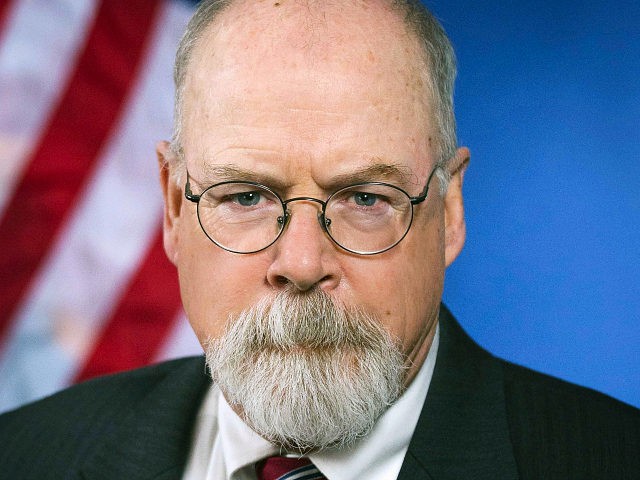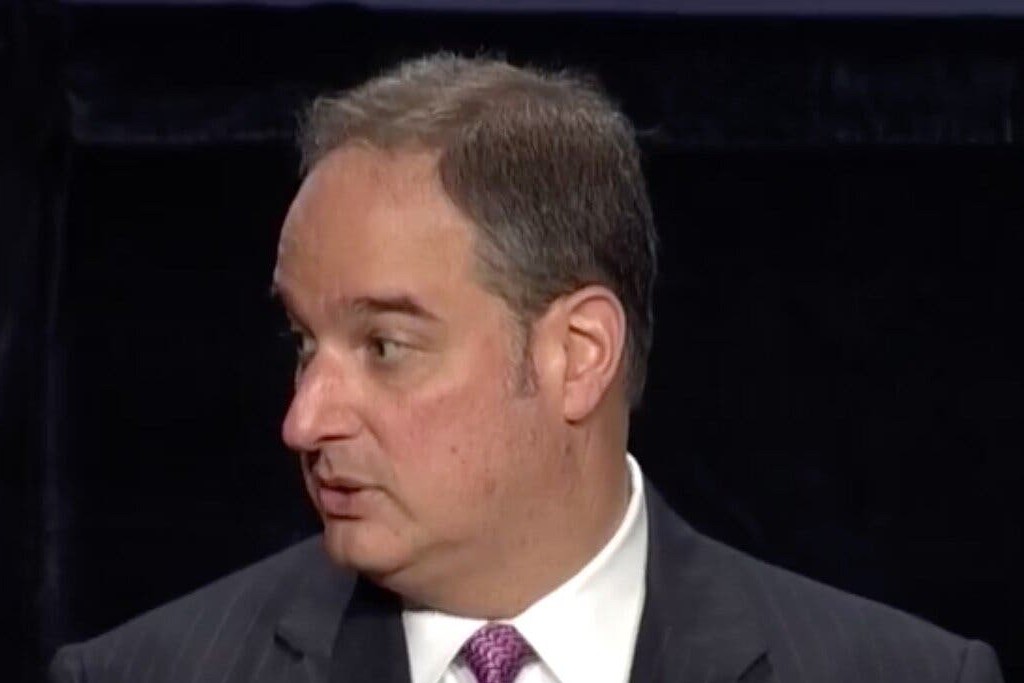Special Counsel John Durham in his most recent filing on Friday argued against dismissing charges against lawyer Michael Sussmann for lying to the FBI in 2016 when he said he was not representing any client when presenting them with data he claimed showed a relationship between the Trump campaign and Russia — when he was allegedly working for the Clinton campaign.
Durham argued in his March 4 filing that Sussmann lying to the FBI about not working for any client — namely the Clinton campaign — when he presented the FBI with that data less than two months before the 2016 election prevented the FBI from fully understanding and vetting the source of that data and may have influenced the FBI’s launching an investigation into the Trump campaign.
As Durham reiterated in his filing, Sussmann, who was a lawyer at Perkins Coie, which was serving as counsel to the Clinton campaign, met with FBI General Counsel Jim Baker at the FBI Headquarters less than two months before the election. He provided Baker with “purported data” and “white papers” that allegedly demonstrated a covert communications channel between the Trump Organization and Alfa Bank, a Russian bank.
Durham wrote that Sussmann’s argument — that his alleged false statement to Baker is “immaterial as matter of law” — is an argument “without merit.”
Durham argued that Sussmann’s “false statement was capable of influencing both the FBI’s decision to initiate an investigation and its subsequent conduct of that investigation.”
“The defendant’s false statement to the FBI General Counsel was plainly material because it misled the General Counsel about, among other things, the critical fact that the defendant was disseminating highly explosive allegations about a then-Presidential candidate on behalf of two specific clients, one of which was the opposing Presidential campaign,” he wrote.
He added:
The defendant’s efforts to mislead the FBI in this manner during the height of a Presidential election season plainly could have influenced the FBI’s decision-making in any number of ways. The defendant’s core argument to the contrary rests on the flawed premise that the FBI’s only relevant decision was binary in nature, i.e., whether or not to initiate an investigation. But defendant’s assertion in this regard conveniently ignores the factual and practical realities of how the FBI initiates and conducts investigations.
Durham said he expects evidence will prove that the FBI could have taken other steps than open a “full investigation” on the Trump campaign, such as conducting an assessment or opening a preliminary investigation, or delaying a decision until after the election, or declining to investigate the matter altogether.
He wrote:
Indeed, a host of factors play into the FBI’s decision of whether and how to initiate an investigation, which include, among others, the source and origins of the information. Here, had the defendant truthfully informed the FBI General Counsel that he was providing the information on behalf of one or more clients, as opposed to merely acting as a ‘good citizen,’ the FBI General Counsel and other FBI personnel might have asked a multitude of additional questions material to the case initiation process. They might have asked, for example, whether the defendant’s clients harbored any political biases or business motives that might cast doubt on the reliability of the information.
And they also likely would have conducted additional, behind-the-scenes steps (database checks, case file searches, etc.) to assess the defendant’s potential motivations and those of his clients. Indeed, it is obvious that a lawyer presenting himself as a paid advocate for a client naturally raises specific concerns related to bias, motivation, and the reliability of the information being provided. Moreover, the Department of Justice and the FBI maintain stringent guidelines on dealing with matters that bear on U.S. elections.
He wrote that contrary to Sussmann’s argument that his motivation in providing the information to the FBI is “immaterial,” a person’s motivation in providing information to the FBI can be a “highly material fact in determining whether and how the FBI opens an investigation and then conducts an investigation it has opened.”
“And the evidence will show that it would have been all the more material here because the defendant was providing this information on behalf of the Clinton Campaign less than two months prior to a hotly contested U.S. presidential election. In sum, the evidence will demonstrate that the defendant’s false statement to the FBI General Counsel had the capacity to influence the lawful function of the FBI as it related to the case initiation phase,” he wrote.
Durham also dismissed Sussmann’s argument that the charges would criminalize First Amendment speech.
“The defendant’s inflated concerns about overreach and overcriminalization should be rejected,” he said.
Durham also argued that the First Amendment does not protect false statements to government agencies.
He wrote, “Far from finding himself in the vulnerable position of an ordinary person whose speech is likely to be chilled, the defendant – a sophisticated and well-connected lawyer – chose to bring politically-charged allegations to the FBI’s chief legal officer at the height of an election season. He then chose to lie about the clients who were behind those allegations. Using such rare access to the halls of power for the purposes of political deceit is hardly the type of speech that the Founders intended to protect.”
He also dismissed Sussmann’s argument that the charge would imperil communications between lawyers and the government as “fanciful.”
“As a former government attorney and prosecutor, the defendant was well aware that the law required him to be honest and forthright when communicating with the FBI. Despite that knowledge, the defendant chose to conceal from the FBI that he was acting as a paid advocate for clients with political and business agendas,” he wrote.
“This false statement deprived the FBI of critical information that might have permitted it to better allocate its resources, make critical decisions regarding the opening or conduct of the investigation, and examine the origins of the purported data,” he said.
“That lawyers should be honest in their dealings with federal law enforcement agencies is not an imposition that the Constitution prohibits. It is an expectation that undergirds the integrity of our legal system,” he added.
Follow Breitbart News’s Kristina Wong on Twitter or on Facebook.


COMMENTS
Please let us know if you're having issues with commenting.